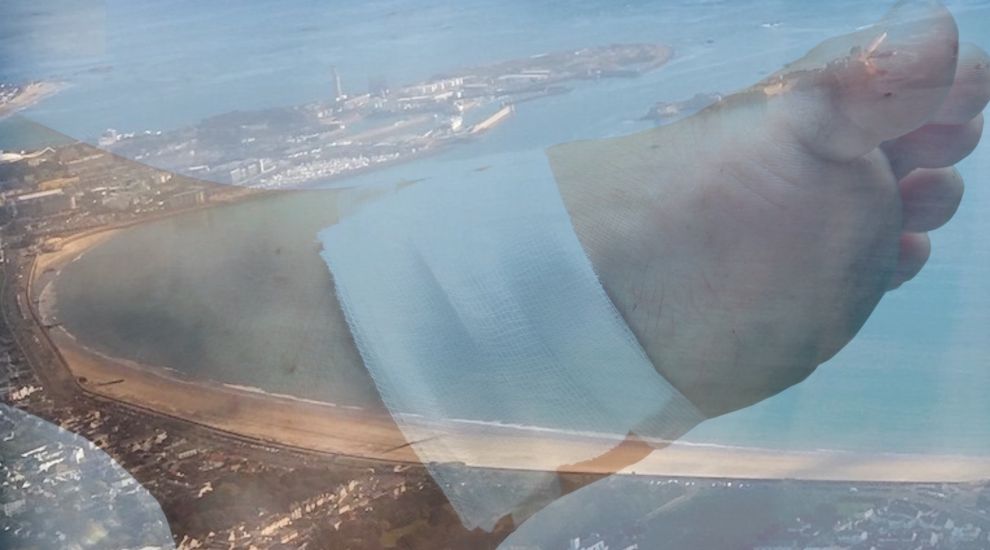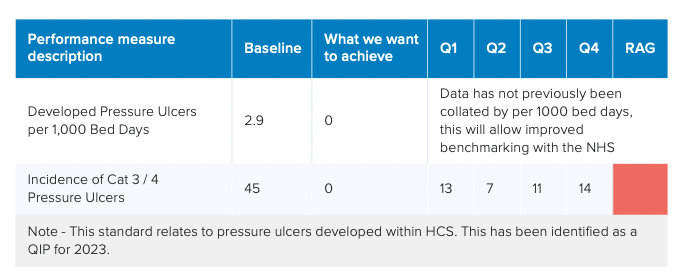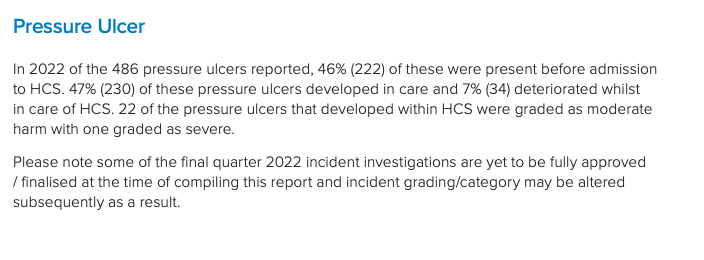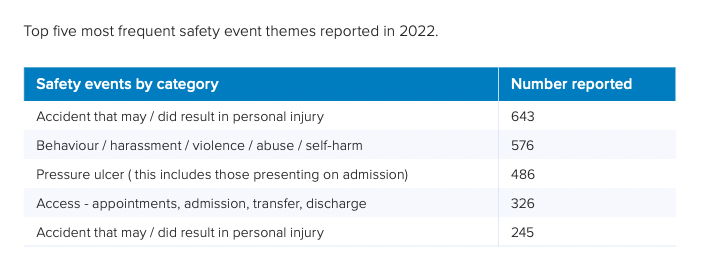


Reducing the number of pressure ulcers is one of the key areas to improve in the latest Health and Community Services' Quality Report — with 486 being reported last year.
The report outlines a number of actions to reduce both hospital-acquired pressure ulcers and those which deteriorate in the care of HCS.
The worst pressure ulcers — those graded as category 3, category 4, unstageable, or multiple pressure ulcers at category 2 — will have a root cause analysis completed to ensure that lessons are learnt.

Pictured: Last year, 45 pressure ulcers in HCS settings were graded at the most serious levels of category 3 or 4.
A pressure ulcer is localised damage to the skin and/or underlying tissue, resulting from sustained pressure which can be present as intact skin or an open ulcer and may be painful. The report describes pressure ulcers as an "avoidable and costly harm that has a negative impact on patient safety and the patient’s experience".
"Pressure ulcers represent a major burden of sickness and reduced quality of life for people, their carers, and families," the report added.
The NHS defines a category 2 pressure ulcer as an open wound or blister, while a category 3 pressure ulcer is a deep wound that reaches the deeper layers of the skin, and a category 4 pressure ulcer is a very deep wound that may reach the muscle and bone.
The report shows that last year, 45 pressure ulcers in HCS settings were graded at the most serious levels of category 3 or 4.

Pictured: The report compared the number of pressure sores present before admission to HCS (46%) to the number of those that developed in care (47%).
Action points outlined in the report to reduce the prevalence of pressure ulcers include regular 'task force' meetings, increased education, and the displaying of monthly pressure ulcer rates in a visible location within wards and units to ensure that staff are aware of the status of their clinical area.
The report also suggested that collaboration with Electronic Patient Record (EPR) Team to ensure Pressure Ulcer Risk assessments, pathways and care plans are incorporated into the new system.
Family Nursing and Home Care recently raised concerns about the lack of shared IT systems used in healthcare across the island, explaining that “there would be significant improvement if there was a system enabling health professionals and carers to have the appropriate information to provide seamless care for an individual and support professionals adopting a joined up, multi-disciplinary approach”.
The nursing charity also called for increased funding for equipment to prevent and treat pressure ulcers, following an inquest into the death of an 81-year-old care home resident who arrived in hospital with a pressure sore one nurse described as "one of the most serious I've ever seen".

Pictured: Pressure ulcers were one of the top five most frequent safety event themes reported last year, with 486 incidents reported.
The inquest heard that education around the issue of pressure sores had improved, particularly following the introduction of an Island-wide Pressure Ulcer Prevention and Management Framework in 2021.
However, Family Nursing and Home Care confirmed that the incident had "helped to identify the need for further detail within the framework" — which is due to be reviewed this year.
The Deputy Viscount concluded the inquest by confirming that he would "write to various agencies to set out learning points in the hope that this may aid future policies" about pressure sores.
Pensioner's death sparks calls for bed sore equipment funding
Death of 81-year-old to "aid future policies" on bed sore care
Safeguarding concerns raised after death of pensioner with "serious" bed sore
Inquest to determine if elderly man's bed sore care was correct
Comments
Comments on this story express the views of the commentator only, not Bailiwick Publishing. We are unable to guarantee the accuracy of any of those comments.